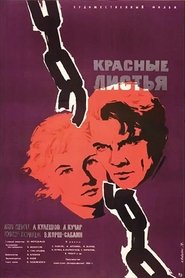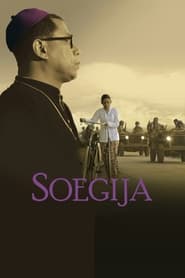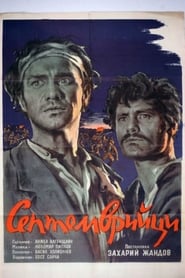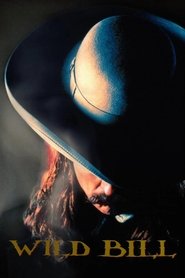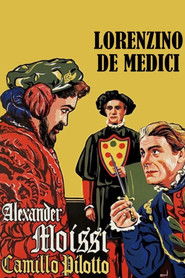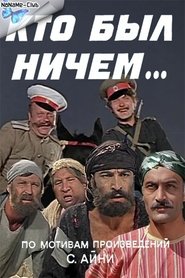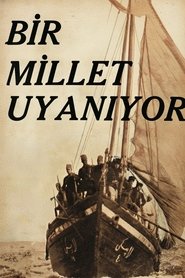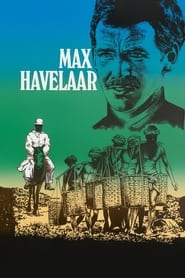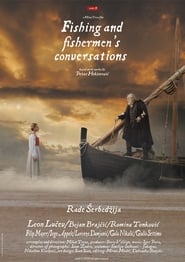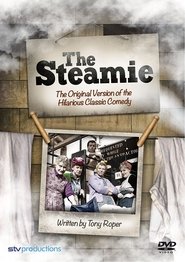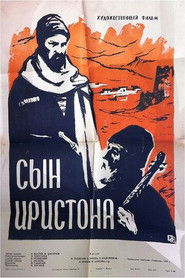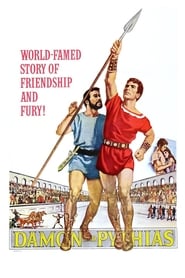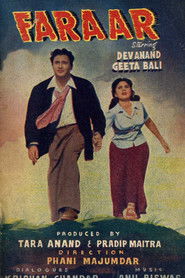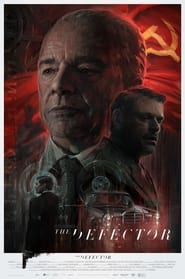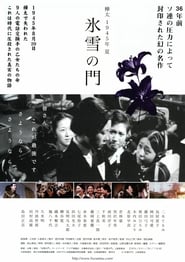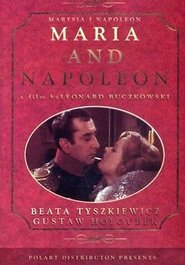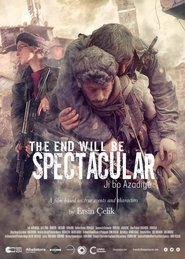Popular History Movies - Page 283
-
Red Leaves
1958
Red Leaves
1958
star 5A story is taking place in West Belarus where local rebels are fighting for the unification with Soviet Union during 1930-ies. -
Soegija
2012
Soegija
2012
star 6.3This movie follows the story of Dutch East Indies' (now Indonesia) first indigenous bishop, Albertus Soegijapranata SJ, from his inauguration until the end of Indonesia's independence war (1940-1949). -
The Heroes of September
1954
The film is dedicated to the uprising, which broke out in Bulgaria in September 1923. All characters, with the exception of the leaders of the uprising Georgi Dimitrov and Vasil Kolarov, are symbolic characters. The central figures, Stefan and Peter, impersonate the motive forces behind the uprising - the workers and the peasants. They are involved in worker's strikes, in the stormy events of the First World War and the Soldier's uprising in 1918. They also participate in the bloody clashes of the September uprising and suffer its defeat after they have seen too late the need for concerted action by communists and agrarians. -
Wild Bill
1995
Wild Bill
1995
star 5.7Biopic about famous gunslinger Wild Bill Hickock. The early career of legendary lawman is telescoped and culminates in his relocation in Deadwood and a reunion with Calamity Jane. -
Lorenzino de' Medici
1935
Lorenzino de' Medici
1935
Lorenzino de 'Medici manipulates Alessandro ruler of Florence to save his beloved Bianca. -
Who Was Nothing...
1974
Who Was Nothing...
1974
Two-part epic about the establishment of Soviet power in Tajikistan based on the works of S. Aini. -
Bir Millet Uyanıyor
1932
Bir Millet Uyanıyor
1932
star 7.3The events begin on March 15, 1920. The captain Davut, who belongs to the Kuvva-i Milliye in Anatolia, and the commander Tilki join the alliance that first presses the Akbas Ammunition and transfers the ammunition to the Kuvva-i Milliye on a received code. -
Max Havelaar: or, The Coffee Auctions of the Dutch Trading Company
1976
star 6.2An idealistic Dutch colonial officer posted to Indonesia in the 19th century is cohvinced that he can make the kinds of changes that will actually help the local people he is in charge of, but circumstances soon make him realize just how out of touch he really is, and it doesn't take long for things to go from bad to worse. -
Fishing and Fishermen's Conversations
2020
star 5A nobleman poet embarks on boat trip with two local fishermen. As they hop the bucolic islands he recalls his youthful tragic love, his artistic impotence and uneasy relationship with common fishermen. -
The Steamie
1988
The Steamie
1988
star 8.3Tony Roper wrote 'The Steamie' for Glasgow's Mayfest in 1987. Return to Hogmany 1957 when a fiesty group of Glasgow women; Mrs Culfeathers, Dolly, Doreen and the irrepressible Magrit, all meet at The Steamie to do the traditional family wash before the New Year. The Steamie is a hilarious cameo of Glasgow's social history where the washing was always easier to do when the Women shared their laugher and sorrow and a scandalous supply of gossip. This is the definitive version of the most popular play of the last 20 years with the all star cast of Dorothy Paul as Magrit, Eileen McCallum as Dolly, Kate Murphy as Doreen, Sheila McDonald as Mrs Culfeathers and a very young Peter Mullan as Andy, the whisky loving handy man. -
Iriston's Son
1960
Iriston's Son
1960
After getting expelled from the St. Petersburg Academy of Arts for his free-thinking ideas, young artist Kosta Khetagurov returns to his homeland of Iriston, known in Russian as Ossetia. Despite financial troubles and governmental persecution, he tirelessly advocates for the Ossetian people while honing his craft as a poet, playwright, and artist. -
Damon and Pythias
1962
Damon and Pythias
1962
star 4Damon is a thief who begins to question his beliefs after he meets Pythias, a liberal Athenian who believes all men are brothers. -
Faraar
1955
Faraar
1955
A group of freedom-fighters face betrayal and go on the run from police in British-occupied Hindustan. -
Kobe Shinbun no Nanokakan
2010
Also known as the "Kobe earthquake," the massive earthquake struck the southern Hyogo prefecture on January 17, 1995 and resulted in more than 6,400 casualties. The drama will focus on the reporters working for the Kobe Shimbun, who were determined to keep the newspaper running without interruption, despite the damage suffered during the earthquake. The characters in the drama will all be based on real people, using their real names. Sakurai stars as the photo reporter Tomohiko Mitsuyama, who had joined Kobe Shimbun four years before the earthquake. The show will also have documentary segments such as interviews, including an appearance by Mitsuyama himself. -
The Phoney War
2019
The Phoney War
2019
star 8September 3rd, 1939. Britain and France declare war on Nazi Germany, only two days after the Wehrmacht invades Poland. This day, the sad date when the fate of the world changed forever, the Phoney War began: eight months of uncertainty, preparations, evacuations and skirmishes. -
The Defector
2017
The Defector
2017
star 71967, the height of the Red Scare. Australian Prime Minister Harold Holt is embroiled in a power struggle after discovering his spymaster has illegally investigated and exposed Red sympathisers embedded within Holt's administration. -
Vincere
2009
Vincere
2009
star 6.7The story of the descent into madness of Mussolini's secret first wife, Ida Dasler, who was seduced by his passion and vigor but blind to the fascist dictator's many flaws. -
Karafuto 1945 Summer
1974
Karafuto 1945 Summer
1974
star 8.5The film is set in Karafuto after the radio broadcast of the Imperial Rescript on the Termination of the War. On August 15, 1945, Soviet forces invaded Karafuto. On August 20, the postal telegraph office in Maoka suspended operations and nine of the twelve telephone operators committed suicide by taking potassium cyanide while the city was being invaded. -
Maria and Napoleon
1966
Maria and Napoleon
1966
star 6.2In 1807, Napoleon meets and falls in love with 22-year-old Polish countess Marie Walewska, who is unhappily married to a much older man. Enchanted by the blonde, blue-eyed countess, the emperor enters into an affair with Marie, who uses the relationship to induce Napoleon to treat Poland fairly. -
The End Will Be Spectacular
2019
star 6.5Zilan, a young woman, returns to her home town looking for traces of her dead brother, killed by ISIS. But her town is not what it used to be: social and political tensions have escalated into a state of war. The people have risen up to demand their political autonomy and the police and army repress them with brutal force. But the city’s resistance will go on for more than 100 days and Zilan will not remain a passive witness. Based on the diaries of those who died fighting and the testimony of survivors, who are the protagonists of the film, Çelik's first feature explores concepts such as hope, friendship, sacrifice and loss in the struggle for freedom of a group of young people.
 Netflix
Netflix
 Amazon Prime Video
Amazon Prime Video
 Apple iTunes
Apple iTunes
 Apple TV Plus
Apple TV Plus
 Disney Plus
Disney Plus
 Google Play Movies
Google Play Movies
 Paramount Plus
Paramount Plus
 Hulu
Hulu
 HBO Max
HBO Max
 YouTube
YouTube
 fuboTV
fuboTV
 Peacock
Peacock
 Peacock Premium
Peacock Premium
 Amazon Video
Amazon Video
 The Roku Channel
The Roku Channel
 AMC+
AMC+
 Kocowa
Kocowa
 Hoopla
Hoopla
 The CW
The CW
 Vudu
Vudu
 Starz
Starz
 Showtime
Showtime
 PBS
PBS
 Pantaflix
Pantaflix
 FXNow
FXNow
 Tubi TV
Tubi TV
 Kanopy
Kanopy
 Comedy Central
Comedy Central
 Crunchyroll
Crunchyroll
 Microsoft Store
Microsoft Store
 Redbox
Redbox
 Sun Nxt
Sun Nxt
 ABC
ABC
 DIRECTV
DIRECTV
 Crackle
Crackle
 Fandor
Fandor
 Plex
Plex
